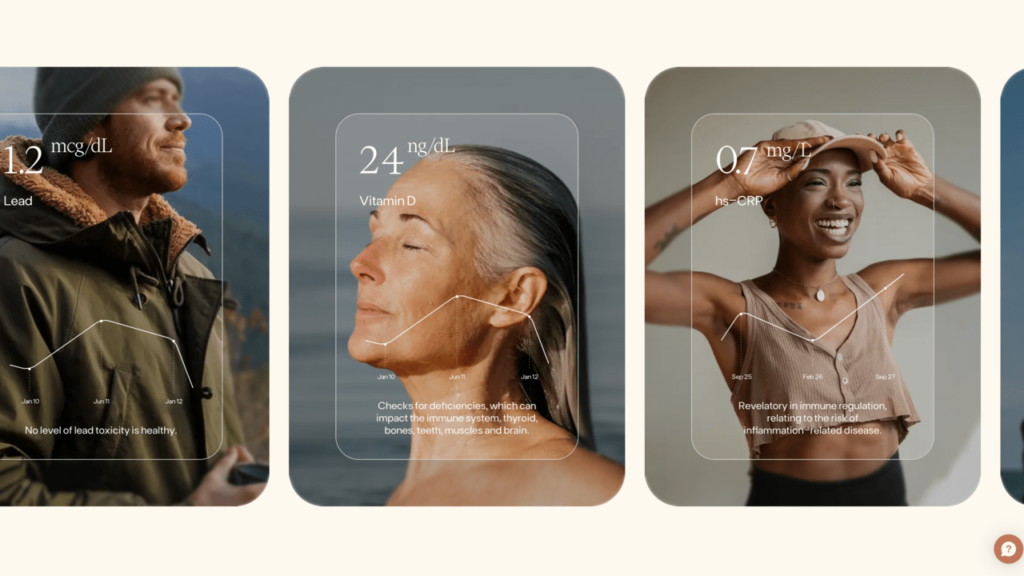Is Aging a Choice? Doctors, Experts See Bright Future for Longevity Science

This article is part of ATN’s DISRUPT 2024 video series, featuring can’t-miss conversations with the biggest executives in fitness and wellness. To watch DISRUPT content, click here
The field of longevity, essentially the science of living better, for longer, shows no signs of slowing down.
Driven by Americans’ growing distrust of the traditional healthcare system and the rise of wellness-focused podcasts and social media content, an entire industry has formed, with longevity-focused companies reeling in millions in funding to chase what once seemed like an impossible goal: delay – or even reverse – the aging process.
Three leaders of the burgeoning longevity movement – Dr. Mark Hyman, a physician and co-founder of Function Health, Dr. Frank Lipman, a functional medicine doctor who runs the Eleven Eleven Wellness Center in New York City, and Naveen Jain, the founder and CEO of personalized health testing company Viome, sat down during ATN’s DISRUPT video series to give their thoughts on this emerging field.
ATN breaks down some key insights from their conversation, including the rise of longevity science, the future of GLP-1s, and the potential of personalized healthcare.
Understanding the Longevity Boom
What’s behind the longevity boom? For starters, the science of health optimization has come a long way in just the last few years, according to Dr. Hyman.
“There’s been a tremendous boom in the science,” Dr. Hyman said. “Up until a few years ago … it’d been a neglected area. The (National Institutes of Health) has spent almost nothing studying aging itself because it was thought to be this irrevocable process that you could do nothing about. But then a bunch of billionaires who don’t want to die started pouring millions and billions of dollars into longevity research, and so now there’s a whole field of longevity science.”
According to Dr. Hyman, the field of longevity science is about understanding the “underlying mechanisms for how we grow old” and then finding ways people can slow or even reverse the biological aging process through a combination of lifestyle changes, medication and supplementation.
“For the first time in history, we actually are understanding that the things that happen to us – that typically happen to us as we get older – such as heart disease, diabetes, cancer, Alzheimer’s – these are not inevitable consequences of aging,. Neither is frailty or disability or dysfunction; these are optional,” he explained.
As the science of longevity has risen, so too has the general public’s interest in health optimization, at least among a certain portion of the population.
Jain, who founded Viome in 2016, believes the COVID-19 pandemic kickstarted things, creating an urgency that prompted people to become more aware of their health.
“I really think COVID made us realize that you don’t want to be sick and go to the hospital,” Jain said, noting that many people who got severely ill or died from COVID had “comorbidities” that exacerbated the virus.
“During COVID, we realized that we can become the CEO of our own health,” he added. “We realize that health is not something that happens to us, it’s actually something we can control.”

GLP-1s, Other Drugs Show Promise for Anti-Aging
While Dr. Hyman and Dr. Lipman were both quick to note that healthy lifestyle choices including proper sleep, diet and exercise are the foundational pillars of longevity, they believe drugs can make a difference, provided they’re the right ones and are dosed properly.
Dr. Lipman believes GLP-1 agonists have a future beyond helping people manage diabetes or lose weight: in low doses, they can be powerful longevity drugs.
“I see (GLP-1s) as a wonderful anti-aging medication at a low dose,” he said, noting the proper dosage is significantly lower than what’s typically prescribed for weight loss and that GLP-1s must be accompanied by proper diet and exercise.
Peptides (including GLP-1s like Ozempic) in general are highly promising, Dr. Lipman believes, citing clinical results.
“I’m a huge fan of peptides,” he said. “I’ve seen it help myself and many, many of my patients.”
Dr. Hyman believes rapamycin shows promise as an anti-aging drug.
“(Rapamycin) has a lot of really good data in animal models and human models as well,” he said. “Taken intermittently and at low doses, (it) can actually extend life and improve the quality of life and healthspan.”
The Function Health co-founder is more skeptical of metformin, another drug that’s become popular in longevity circles for its potential anti-aging effects. He cited the lack of a large, randomized control trial on the drug’s effects and some concerning findings from interventional trials.
“When you look at the interventional trials, for example, on metformin, it has a lot of benefits, but it doesn’t work better than lifestyle,” Dr. Hyman explained. “And it inhibits something called mitochondrial complex I, which inhibits your ability to build muscle and improve your mitochondrial function, which is critical for aging.”
Is Personalization the Key to Living Longer?
According to Jain, who was inspired to create Viome after his father passed away from pancreatic cancer, personalization is the key to longevity.
Viome offers at-home health tests that measure people’s oral microbiome, gut microbiome and cell activity. The platform then offers personalized food, supplement and lifestyle recommendations based on the results. Viome also offers CancerDetect, a test that’s designed to detect biomarkers associated with early-stage oral and throat cancer, although that service is not yet FDA-approved.
“That’s fundamentally, I think, a foolish idea, that we’re going to find one single silver bullet that’s going to help humanity live healthier and longer,” Jain said. “I believe … there’s going to be 8 billion silver bullets. That means everything is going to be personalized to what’s happening inside your body.”

For Dr. Hyman, who co-founded Function Health in 2021, the future of healthcare won’t just happen inside doctors’ offices, it will happen at home, in gyms and elsewhere. Function offers blood tests that measure 100-plus biomarkers, including hormones, thyroid, heart, metabolic, autoimmunity and toxins, providing users with personalized health recommendations from doctors based on the results.
Last year, Function partnered with Equinox to make its platform available to Equinox members as part of a new longevity membership that includes blood test data and integrated personal training services. While that program will run Equinox members around $40,000 per year (a regular Function Health membership is cheaper, costing $499 per year), Dr. Hyman hopes it marks the beginning stages of making longevity science accessible to a larger swath of the population.
“What we’re talking about is a revolution in consumer-driven healthcare where people are now wanting their own data, wanting to know what’s going on, are not happy with the healthcare system and (are) looking for other places to engage to optimize their health,” Dr. Hyman said. “That’s what …. our partnership with Equinox is doing. That’s what (Jain) is doing with Viome. That’s what (Dr. Lipman) has been working on for his whole life.”


